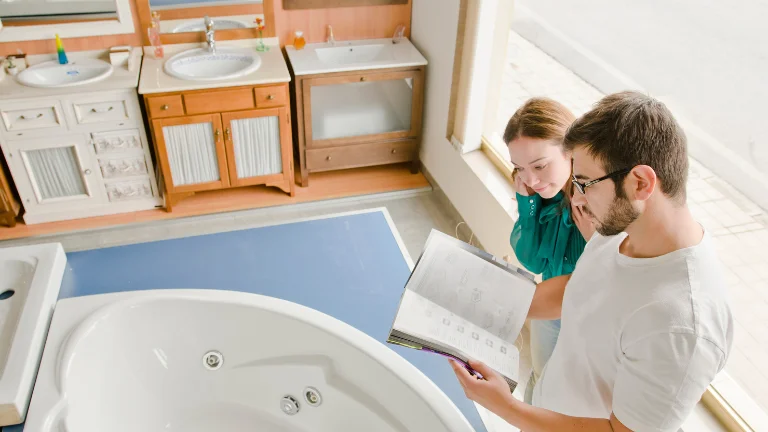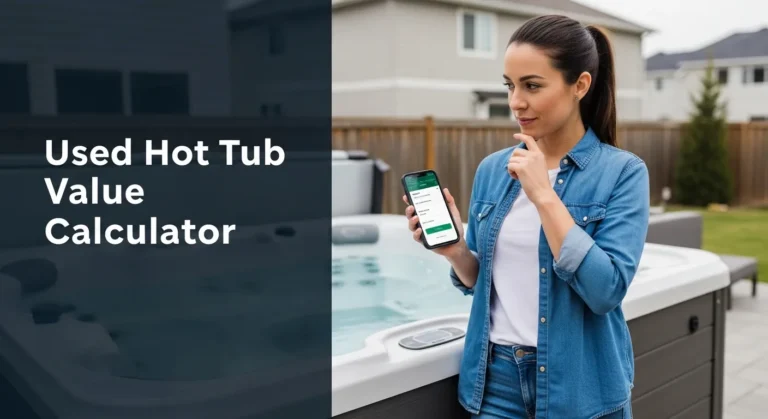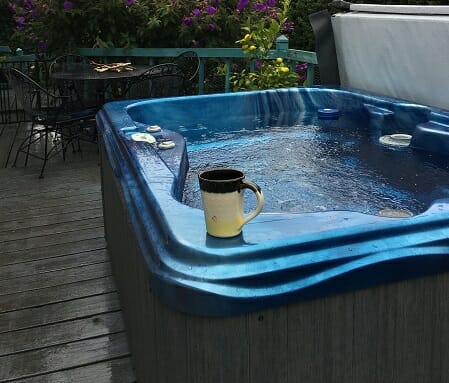Legal Considerations for Selling a Home with a Hot Tub
Selling a home is an exciting journey full of possibilities and new beginnings. One way to make your property stand out is to highlight its unique features, like a hot tub.
A hot tub can add significant value to your home, making it more appealing to potential buyers looking for relaxation and luxury.
However, selling a home with a hot tub has legal considerations. It’s essential to be aware of these to ensure a smooth transaction and avoid any surprises down the road.
In this article, we’ll discuss the key legal aspects to consider when selling a home with a hot tub.
Understanding Legal Obligations
When selling a home with a hot tub, you must meet several legal obligations to ensure a smooth and lawful transaction. Here are the key considerations:
Disclose the Existence and Condition of the Hot Tub
Transparency is key when selling a home. You must disclose the hot tub’s presence and condition to potential buyers, including any known issues or past repairs. Being upfront can prevent future disputes and build trust with buyers.
Relevant Local Regulations for Disclosure
Different states and municipalities have rules about what must be disclosed during a home sale. Research local regulations to understand what information you need to provide about the hot tub. This might include its age, maintenance history, and any past problems.
Potential Inspections Required for the Hot Tub
Some areas may require a special hot tub inspection to ensure they meet safety and health standards. Check with local authorities or your real estate agent to see if this applies to your sale. An inspection can also reassure buyers about the hot tub’s condition.
State or Local Variations
Laws and regulations can vary significantly from one place to another. For example, some states have stringent disclosure laws, while others are more relaxed. Ensure you understand your area’s specific requirements to avoid legal pitfalls.
Warranty Transfer
When selling a home with a hot tub, it’s important to address the issue of warranties. Here’s what you need to know:
How Warranties Might Transfer to the New Owner
Hot tubs often come with warranties that cover various components, such as the pump, heater, and shell. Check the details of your hot tub’s warranty to see if it is transferable to the new owner. Some warranties automatically transfer, while others require a formal transfer process.
Seller’s Responsibility Regarding Warranties
As the seller, you are responsible for informing the buyer about the hot tub’s warranty status. If the warranty is transferable, provide the necessary documents and guide the buyer through the transfer process. If it is not transferable, be upfront about it to avoid future misunderstandings.
Steps to Take for a Smooth Transfer
- Review the Warranty Terms: Understand the specific terms and conditions of your hot tub’s warranty.
- Contact the Manufacturer: Reach out to the hot tub manufacturer to confirm the transfer process.
- Provide Documentation: Ensure the buyer receives all warranty documents, including proof of purchase and service records.
- Assist with Transfer: If a formal transfer is needed, help the buyer complete the required steps.
Check out for more about Hot Tub Inspections and Appraisals.
Liability Concerns
Selling a home with a hot tub involves addressing potential liability issues. Here are key points to consider:
Potential Liability Issues
When you sell a house with a hot tub, you need to be aware of the potential liability issues that could arise. Buyers might hold you responsible if the hot tub has undisclosed problems or causes injuries after the sale. Ensuring the hot tub is in good working order and clearly communicating its condition can help mitigate these concerns.
Safety Concerns
Safety is a top priority when it comes to hot tubs. Ensure that your hot tub meets all local safety standards, including proper fencing, covers, and childproof locks if required. A well-maintained and safe hot tub not only adds value but also reduces the seller’s risk of future liability.
Steps to Minimize Liability
To minimize your liability when selling a home with a hot tub, consider the following steps:
- Regular Maintenance: Keep up with regular maintenance and repairs. Record all service and maintenance activities to show potential buyers.
- Professional Inspection: Hire a professional to inspect the hot tub before listing your home. An inspection report can reassure buyers about the hot tub’s condition.
- Provide Documentation: Supply all relevant documentation, including maintenance records, warranty information, and any inspection reports, to the buyer.
For more, read about the Benefits of Selling a House with a Hot Tub.
Final Thoughts:
Selling a home with a hot tub can be an exciting venture that adds significant value to your property. However, it’s crucial to understand and address the legal considerations involved to ensure a smooth transaction. Check out Hot Tub Patio for more info and product recommendations about hot tub
Reiterate the Value
A hot tub can make your home more appealing to potential buyers, offering them a taste of luxury and relaxation. Properly disclosing its condition, understanding warranty transfers, and addressing liability concerns can enhance this value and build buyer confidence.
Importance of Being Informed
Being well-informed about the legal aspects of selling a home with a hot tub is essential. It can prevent future disputes, reduce liability risks, and ensure a transparent and honest transaction. Take the time to research and comply with local regulations, and don’t hesitate to seek professional advice.
Consulting a Lawyer
For specific guidance tailored to your situation, consider consulting a real estate lawyer. They can provide expert advice on legal obligations, warranty transfers, and liability issues, helping you navigate the complexities of selling a home with a hot tub.












